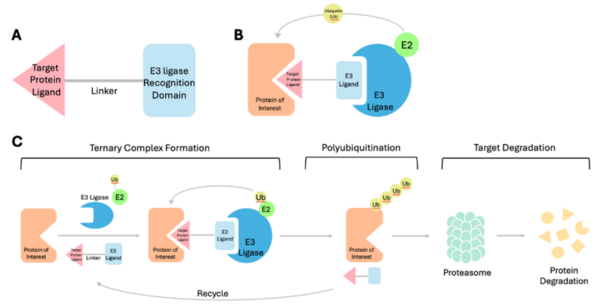Mechanism and cytotoxicity of A1874 proteolysis targeting chimera on CT26 colon carcinoma cell line
(1) Northwood High School, (2) Department of Integrative Biotechnology, College of Biotechnology and Bioengineering, Sungkyunkwan University, Suwon
https://doi.org/10.59720/24-330
Proteolysis targeting chimeras (PROTACs) are low molecular weight compounds that enhance the degradation of specific proteins by leveraging the cell's natural ubiquitin-proteasome system. This technology offers a promising approach to overcoming the limitations of traditional drug therapies by targeting and degrading disease-causing proteins. Recent studies have demonstrated that a PROTAC called A1874 can effectively degrade bromodomain-containing protein 4 (BRD4) in various colon cancer cell lines, including HCT116. However, the effects of A1874 on CT26 colon carcinoma cell lines have not been previously investigated. This research aimed to evaluate the efficacy of A1874 on CT26 cells and to better understand the PROTAC mechanisms. We hypothesized that A1874 can degrade BRD4 in CT26 cells, thereby reducing CT26 cell viability. Our results demonstrated that treatment with 20 μM A1874 led to BRD4 degradation accompanied by 52% reduction in cell viability. However, we did not assess off-target effects of A1874, which is a limitation of our analysis and indicates that more research is needed. From a clinical perspective, this research provides valuable insights into the therapeutic potential and safety profile of A1874 for preclinical and clinical development for cancer treatments.
This article has been tagged with: